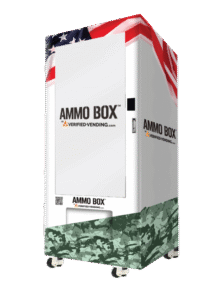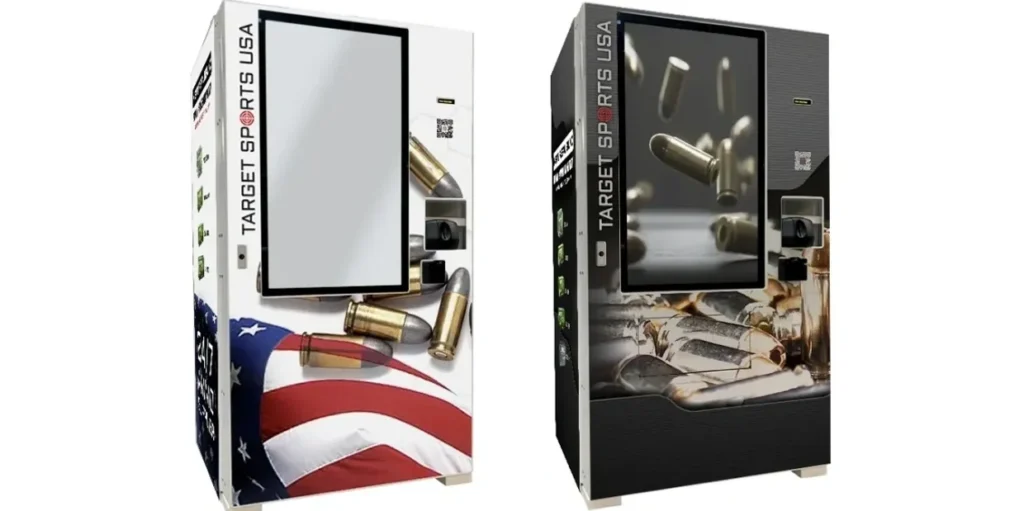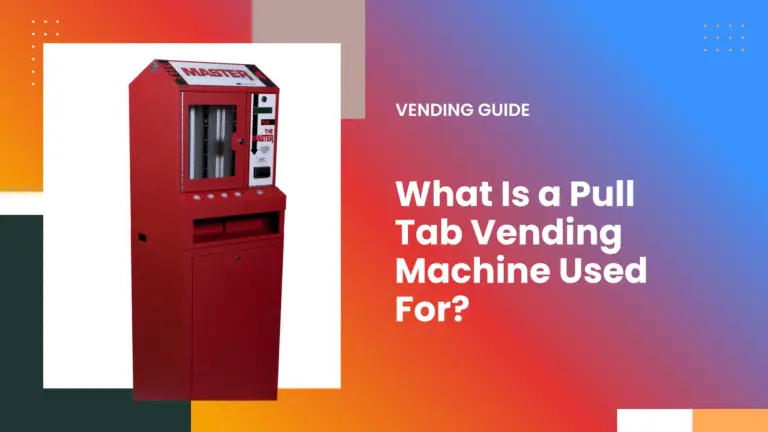Gun Ammunition Vending Machines | Legality, States, ID, Price
Discover Gun Ammunition Vending Machines for sale. Learn about legal requirements, state regulations, and where vending is allowed. Fast, verified, and compliant ammo sales.

Ammo Box Vending Machine – US $4,075
The Ammo Vending Machine offers 24/7 secure ammo sales, real-time monitoring, automated service, profit boost, and customizable, eco-friendly design.

- Real-time ID verification and age authentication for secure transactions
- 7 cubic feet of product storage
- Vends items up to 4 lbs per transaction
- Compatible with pistol, rifle, and shotgun ammo
- Automated customer service reduces overhead
- Integrated digital advertising screen for secondary income
- Remote monitoring and inventory tracking
| Feature | Details |
|---|
| Storage Capacity | 7 cubic feet |
| Maximum Item Weight | 4 lbs per transaction |
| Product Type | Pistol, rifle, shotgun ammo |
| Age Verification | Real-time hardware from ID-Scan.net |
| Payment Processing | High-risk compliant |
| Technology | Real-time sales & inventory tracking, remote monitoring |
Gun Ammunition Vending Machines in the U.S.
Ammunition vending machines in the U.S. offer 24/7 access with ID and facial verification, sparking legal, ethical, and safety debates as they expand in select states like Texas and Alabama.
Legal Landscape: Is it legal?
It varies by jurisdiction; federal minimum-age rules apply.
Key point: Vending kiosks that sell ammunition have been installed in several U.S. states, but state rules and local approaches differ — check local law and store policies before placing a machine.
Federal minimum-age rules: under federal law, rifle/shotgun ammunition sales are restricted to those 18+, and handgun ammunition to those 21+; operators must follow federal and state requirements.
Because rules and litigation evolve, rely on official sources and counsel for a final determination before operating a kiosk.
Setting up: What you need to know
Licensing, age checks, hardware & software basics (compliance-first).
Licensing & Compliance
- Federal license: selling ammunition is generally not subject to the same federal retail firearms dealer license as selling firearms, but sellers must obey federal statutes (age limits, prohibited persons, etc.).
- State & local rules: some states impose additional restrictions, age verification requirements, or reporting obligations — always verify local law.
- Technology: many providers pair ID scanning, card verification, and camera-based checks to verify age/identity; however technology is not a substitute for legal compliance and human oversight where required.
Tip: consult a firearms attorney to draft store policies, signage, and vendor agreements that cover inventory control, storage, insurance and emergency response.
Location
Where to place a machine for best traction (and compliance).
High-traffic retail locations — grocery stores, big-box retailers, sporting goods shops, or hardware stores — can offer steady demand. Prioritize locations with a responsible customer base and solid store management who will support compliance and safe stocking.
Profit Potential
What to expect financially (high-level).
Vending businesses often report gross margins in the 20–25% range, but ammunition vending margins will depend heavily on: wholesale cost, location demand, inventory carrying costs, insurance, and compliance costs (ID verification, software, periodic audits).
Don’t forget recurring expenses: machine maintenance, software subscriptions, restock logistics, and insurance/indemnities required by the host retailer.
Brands & Models
Who’s shipping machines and what they offer.
American Rounds (AARM)
American Rounds is one of the companies behind automated ammo dispensers appearing in retail stores. Their units and reporting often describe ID scanning and face-based checks as part of the verification flow.
AmmoBox / Verified Vending
Other vendors offer regulated vending systems with configurable SKU capacity and integrations for verification and reporting.
When comparing providers: verify (1) verification workflow, (2) data handling & privacy, (3) inventory storage & physical security, and (4) warranty & maintenance SLA.
Ammunition Types
Which rounds are commonly offered.
Common inventory choices include 9mm handgun rounds, 12-gauge shotgun shells, and a variety of rifle calibers. The lawful types you can offer depend on federal limits and state/local restrictions — particularly where state law narrows sales or imposes extra checks.
Risks & Considerations
Security, technology limits, and regulatory change.
- Security: machines must be physically secure and have strong access controls for inventory and cashless payments.
- Technology limits: facial recognition and automated checks are fallible and may misidentify people — rely on robust fallback checks and human oversight where required.
- Regulatory risk: statutes and enforcement approaches can change quickly; monitor federal, state and local guidance and keep legal counsel involved.
Important safety note: this guide does not provide instructions to bypass checks or avoid compliance — never attempt to circumvent age verification or criminal background exclusions.
Final Thoughts
Operate responsibly — compliance and safety first.
Used properly and legally, an ammunition vending machine can be a viable retail product channel. The keys are rigorous compliance, careful location selection, responsible vendor contracts, and transparency with retailers and customers.
If you’re exploring this commercially: (1) retain counsel with firearms law expertise; (2) run a pilot in a cooperative retail partner; (3) implement strict logging, auditing and emergency response plans.
Note: Regulatory guidance can change. The page content is informational and not legal advice.






